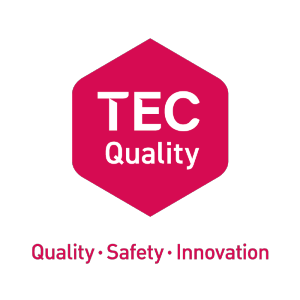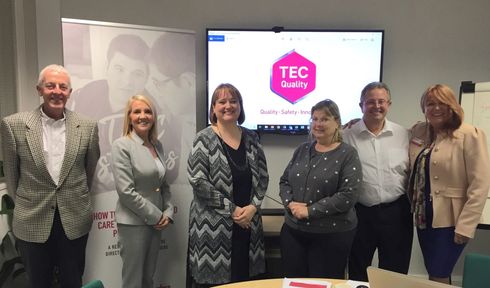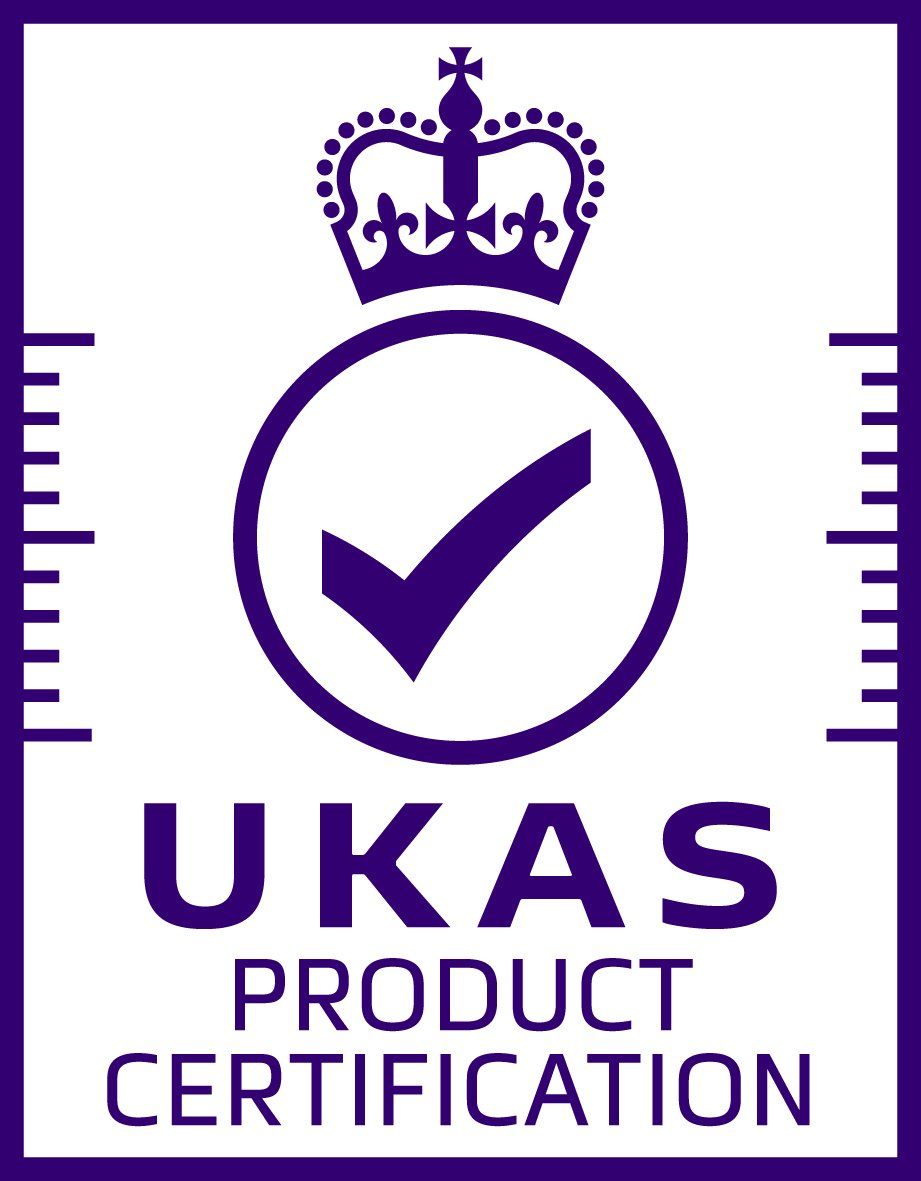TEC Quality gains prestigious UKAS accreditation
TEC Quality • April 16, 2021
TEC Quality are pleased to announce that they have been granted accreditation by UKAS to ISO/IEC17065:2012 for the Certification of Technology Enabled Care Services.
This prestigious accreditation embeds impartiality in to the heart of the Quality Standards Framework and marks the culmination of many months hard work by the TEC Quality team.
The United Kingdom Accreditation Service (UKAS) is the sole national accreditation body for the United Kingdom. UKAS is recognised by government, to assess against internationally agreed standards, organisations that provide certification, testing, inspection and calibration services. UKAS is appointed as the national accreditation body by Accreditation Regulations 2009 (SI No 3155/2009) and the EU Regulation (EC) 765/2008. UKAS operates under a Memorandum of Understanding with the Government, through the Secretary of State for Department for Business, Energy & Industrial Strategy. Accreditation by UKAS demonstrates the competence, impartiality and performance capability of these evaluators.
The UKAS accreditation will form the backbone of QSF going forward. Offering both a unique approach to quality assurance in the TEC sector that is driven by objectivity and underpinned by mandatory validation on an annual basis.
Commenting on the award David Pearson CBE, Chair of TEC Quality says: “The UKAS accreditation evidences beyond doubt that TEC Quality is impartial and provides assurance about quality and safety in the use of technology in providing the care and support that people need.
“This news is fantastic for our excellent team and for the sector as a whole. Commissioners, service providers and suppliers alike can benefit hugely from involvement in QSF as it enhances quality through certification that provides an independent evaluation of organisations who deliver technology enabled care to help meet people’s needs.”
Louise Sanders, UKAS Development Project Manager adds: “UKAS and TEC Quality have worked together to develop accreditation for the certification of telecare and telehealth services. UKAS would like to congratulate TEC Quality on their grant of accreditation as a certification body to ISO/IEC 17065, and to acknowledge the considerable amount of work that TEC Quality have completed and how they are driving standards in the sector.”
The award from UKAS will allow TEC Quality to build stronger partnerships with regulators, sector stakeholders and policy makers. As QSF audits are witnessed and reviewed as part of the accreditation and renewal process to ensure impartiality and objectivity then the scheme can be endorsed with greater confidence. This is already evidenced by QSF endorsement by the National Fire Chiefs Council, Association of Ambulance Chief Executives and more recently the signing of a Memorandum of Understanding with Scotland’s Care Inspectorate.
Alyson Scurfield, TSA Chief Executive, comments: “It’s been of great benefit to have an outside organisation looking at our operation through the microscope. This has resulted in us strengthening our corporate governance, impartiality and independence.
“We’ve been really pleased about the positive nature of the audit. We knew we had a strong scheme and a strong delivery organisation in TEQ Quality, and this award has reinforced that belief. It’s made all the hard work, the restructure and significant investment worthwhile.”
Following the decision to grant accreditation, TEC Quality will reinforce its improvement agenda. All QSF certified organisations will benefit from our association with UKAS and the use of the national accreditation symbol as a mark of quality.
Pictured Left to right above – Ian Clayton, Finance Director, Alyson Scurfield, Chief Executive, Louise Sanders, UKAS Development Project Manager, Sheena Wyllie, UKAS Technical Expert, Paul Finch, TEC Quality Scheme Manager, Wendy Hodgson, TEC Quality Auditor.
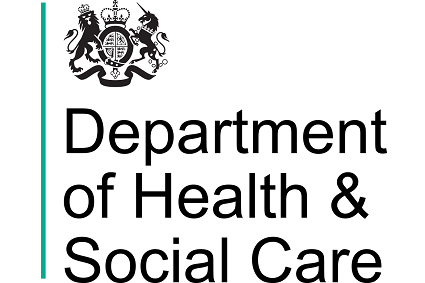
The Department for Health and Social Care’s (DHSC) newly published framework to support good digital working in adult social care has recommended that local authorities and care providers ask organisations that supply them with TEC products and services if they have signed up to the Quality Standards Framework (QSF). DHSC’s What Good Looks Like (WGLL) framework, co-developed with the adult social care sector, Local Government Association and Association for Directors of Adult Social Services (ADASS), provides a collective set of goals for digital leads, directors of adult social services, commissioners and service managers to work towards as they take steps towards digitisation. Under Success Measure 6, which focuses on how to improve care, the framework states, 'when seeking evidence of quality, safety, innovation and continuous improvement, ask organisations providing TEC products and services if they have signed up to the Quality Standards Framework, a scheme run by TEC Quality (a subsidiary of the TEC Services Association) and the only United Kingdom Accreditation Service (UKAS), one for TEC in the UK'. This recognition of QSF and the assurance it provides, follows the work Alyson Scurfield, CEO of TSA has been doing with the Digital Social Care Advisory Group (DSCAG), the DHSC Transformation Team and NHS England on their wider collection of What Good Looks Like guidance to support health and social care leaders with digital transformation. It also chimes with endorsement of QSF from NHS CEO Amanda Pritchard in 2022 when she urged Integrated Care Boards (ICBs) to commission QSF-certified TEC Responders to work with Urgent Community Response (UCR) teams to ease winter pressures. Both Amanda Pritchard and DHSC’s What Good Looks Like (WGLL) framework highlighted QSF’s UKAS accreditation – showing the high quality of its certification process. Alyson Scurfield, CEO of TSA said: “There is very clear messaging in DHSC’s new guidance for social care commissioners. It directly recommends they seek proof of the quality of their TEC suppliers and service providers by checking if they are QSF-certified. Signing up to QSF gives commissioners confidence in an organisation’s products and services but it also instils confidence internally. Receiving external validation is a huge milestone for a TEC organisation. It’s hard proof of the skill, competency and quality of their staff, services and solutions.” Sir David Pearson, chair of TEC Quality said: “Technology enabled care can support individuals and their families proactively, helping to address their needs and aspirations. But this will only happen safely and effectively if high standards and quality improvement are the bedrock of all services and products supplied by TEC organisations. DHSC’s What Good Looks Like (WGLL) framework recommends that social care commissioners check this bedrock by ensuring their TEC suppliers and service providers are QSF-certified.” Find out how your organisation can become QSF-certified by contacting us at admin@tecquality.org.uk .
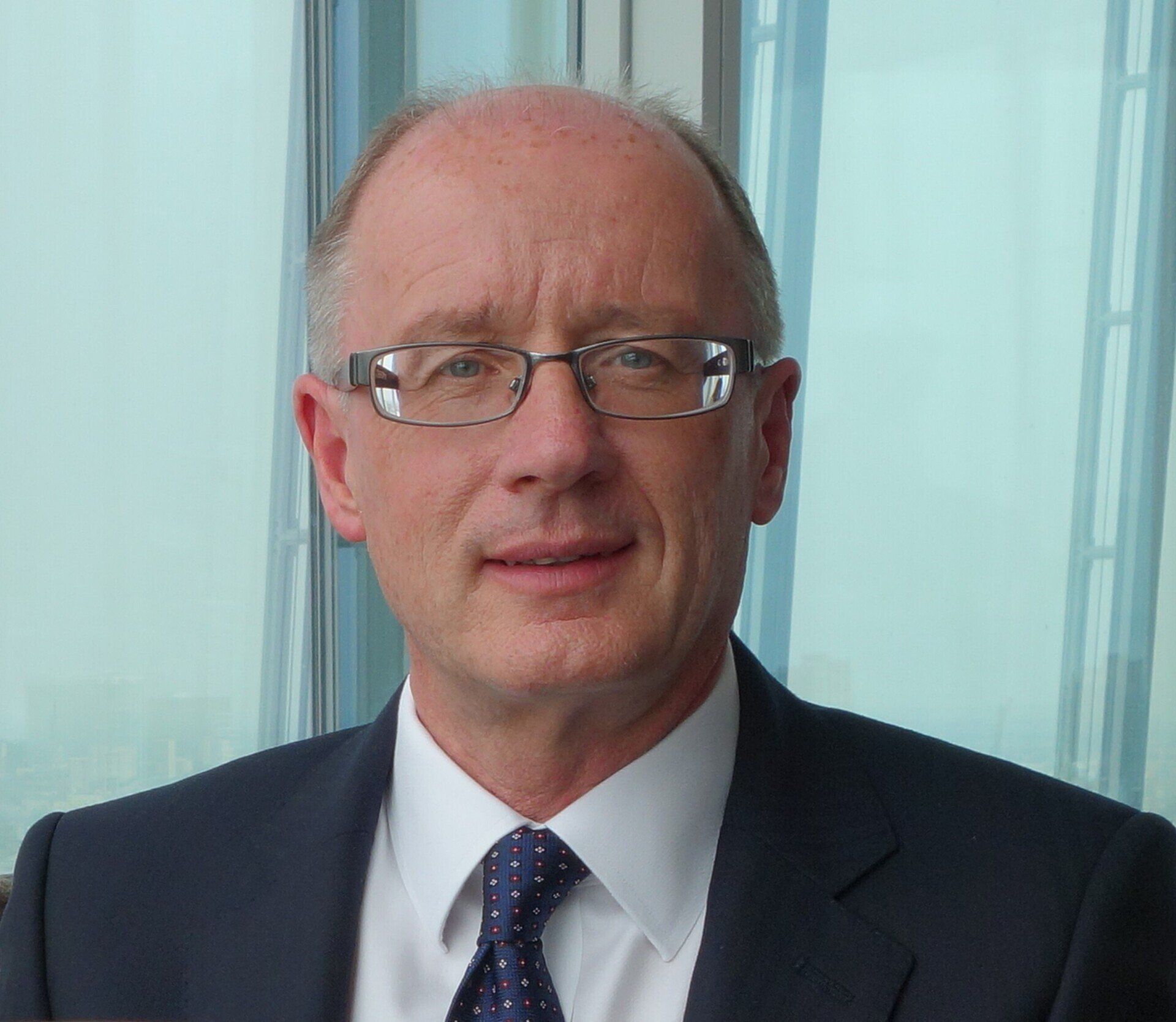
Nigel Sparrow OBE, who worked with the chief inspector of general practice to implement the UK’s regulatory system for GPs, has been appointed as a non-executive director of TEC Quality, the body that runs the Quality Standards Framework (QSF). A GP himself for 30 years, Nigel was senior national GP advisor and responsible officer at the Care Quality Commission (CQC), England’s independent regulator of health and social care. During this time he was part of CQC’s senior leadership team, working on GP regulation and creating guidance and mythbusters about the inspection of GP services. Currently, Nigel Sparrow chairs the GP advisory board at Target Ovarian Cancer. He liaises with key stakeholders in primary care and has developed e-learning educational modules for GPs. Sir David Pearson, chair of TEC Quality said: “Nigel brings vast experience of the health system, specifically medical leadership, quality, standards, regulation and education. His knowledge will be invaluable in positioning QSF as critical to improving the quality of TEC in social care and healthcare.” Nigel Sparrow OBE, non-executive director of TEC Quality said: “Since Covid we’ve seen an explosion in the use of technology in healthcare and we need to make sure it is being used effectively. Everything I’ve done over the years has made sure that people receive the best possible care, and this will be my focus in TEC Quality too. I see a real opportunity to take TEC Quality’s expertise in standard-setting for social care technology and apply it to healthcare technology.”
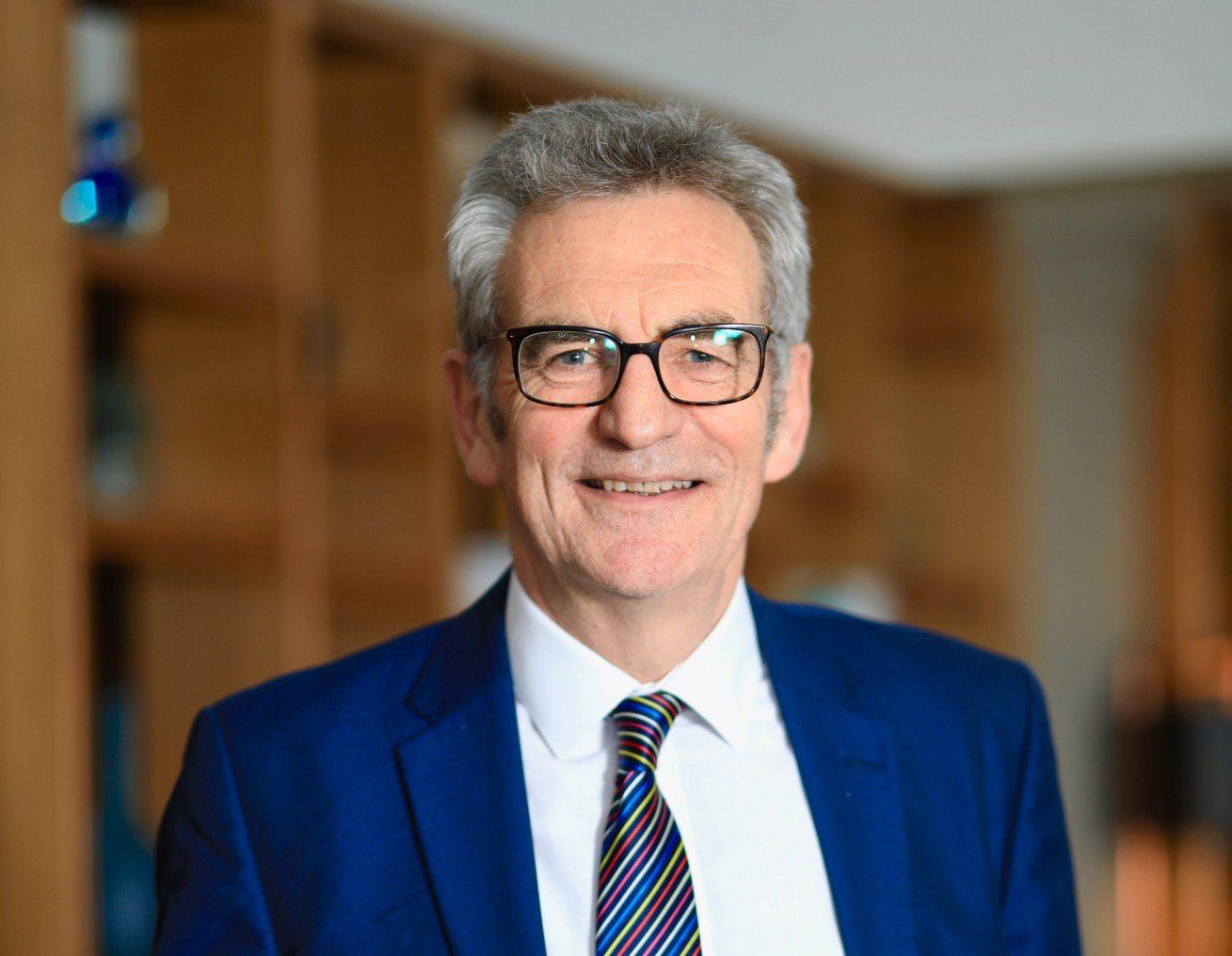
The difference that TEC services make to people’s lives never ceases to amaze me. Hearing about call operators and responder teams providing reassurance, comfort and companionship to people and their families reminds me just how invaluable this sector is. These TEC heroes, and the data and digital systems that connect them, give individuals choice and control over their lives. They have renewed confidence to go out and about, they are empowered to do the things that matter to them, with the people they love, in the communities they call home. Supporting Statutory Services But TEC doesn’t just provide independence or join up services around people’s needs. It is an efficient way of supporting health and social care by boosting the efforts of the people working in the sector and connecting individuals and their families with local community services. At a time of immense pressure on the NHS and councils - with record demand post-Covid - TEC services not only make a huge difference to people’s lives, but they have never been more important in supporting service delivery. Enormous Opportunities Around Tech It strikes me that they have never been more innovative either. There is so much ingenuity and opportunity when it comes to internet of things (IoT) TEC devices, sensors, systems and apps that talk to each other over the web. The value of this TEC connectivity was recognised in the government’s recent social care reform and integration white papers, both of which included weighty sections on using tech to support people’s lives and join up their care. But as we begin to translate these policies into reality, the quality, safety and effectiveness of new and existing TEC services and approaches is paramount. That’s why schemes such as the Quality Standards Framework, which helps TEC organisations to achieve certification through a rigorous and ongoing assessment process are vital. Improving Accountability of Services QSF enables providers (and suppliers) to understand how they are performing and what they can do to improve. It drives accountability and gives local authorities confidence that they are commissioning the right services. But crucially, it gives reassurance to people, their relatives and friends. They know that the life-critical services they rely on have reached certain standards and won’t let them down. Innovation is Key to Improving Lives With an unprecedented number of new policy directions around health and social care - including the Health and Care Act which received Royal Assent in April – one of the common connections that binds them all is promoting innovation to improve people’s lives. In last year’s adult social care reform white paper, at least £150 million of funding was allocated to drive greater adoption of technology and achieve wider digitisation. This also extends to housing, with £300 million earmarked to integrate housing into local health and care strategies. Digital is likely to play a key role in making this happen too. The last few years have been difficult ones, but despite this, I am energised about the future. It is our duty, in the care sector, to look for opportunities that support people to achieve their aspirations and enjoy happy lives. I believe that ensuring the quality of TEC services will help to realise this vision. Find out more about the benefits of being QSF-certified: read our TEC Responder Case Studies here
